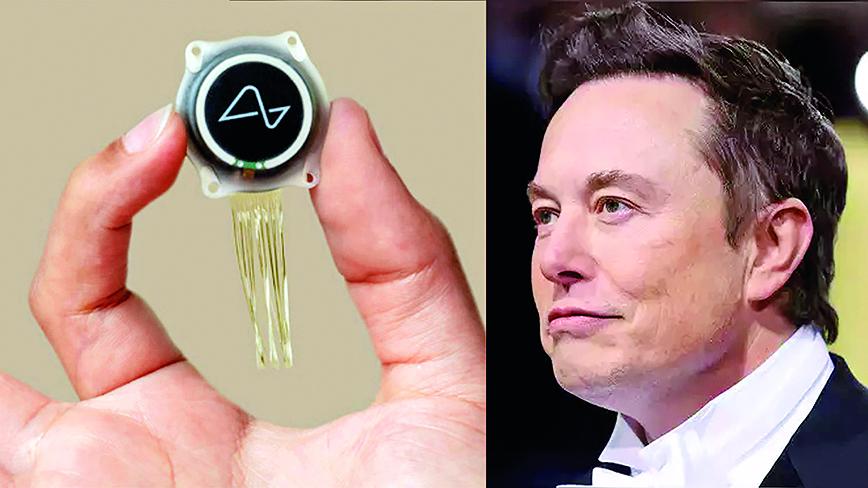

KIRAN KARNIK
OVER the centuries, humans have constantly sought to increase their muscle power. Bullocks for ploughing, water currents for milling, and horses for carrying or pulling loads gave way to engines: first steam, then internal combustion, and now electric ones. Brain power, humans soon realized, was even more important. First, it set them apart and made them superior to other animals; for a while, it deluded them into thinking that it would help them to dominate nature; finally — constantly and sadly — it was a way of enslaving, exploiting, and oppressing other human beings.
Brain power increased through cumulative knowledge, passed from one to the other, teacher to student, and generation to generation. Individuals, groups, organizations and nations sought to build on this. Knowledge became the basis for creating technological products, some good, some destructive and a means of dominance and coercion. As a result, knowledge and technology are the new currencies of power.
It is in this context that one needs to look at recent tech advances, be it in generative artificial intelligence (Gen AI), artificial general intelligence (AGI), or brain-computer interface (BCI). In BCI, the latest announcement by Elon Musk’s Neuralink, of successfully implanting a BCI device in a human patient, has created excitement and interest on a par with that seen when Sam Altman’s Open AI released ChatGPT. Neuralink has basically tested the implanting of a miniaturized electronic package (“coin sized”) in the body, connected to the brain and also, via wireless transmission, to an external computer. The implant translates thoughts (brain waves) into action, enabling paralyzed persons to control external devices with their thoughts or even move their limbs in some cases. It holds out great hope for those with neurological disorders such as ALS or Parkinson’s disease.
This is, indeed, a major step, though the breakthrough — and BCI technology — has been demonstrated by other researchers and is already a few years old. The hype and excitement that accompanies any announcement by Musk is, in part, justified by the fact that he brings immense resources into play. Already, he has a large team working on this and his drive will see things move fast. The initial announcements — and, possibly, intent — is to help people with neurological problems. This noble cause will, hopefully, remain the focus.
Yet, there is real danger that the research and resources will move towards enhancement of brain power. More information, quicker processing, and linkages with AI all seem in the realm of feasibility with implants and BCI technology. With machine-to-machine communication, thought-to-action will take on a new meaning and immediacy. Your thought could turn on the coffee-maker, for instance, or, in a more complex scenario, you could — without moving from your sitting room — open the refrigerator, command a robot to pick up food and place it in the microwave oven, switch on the microwave oven and have it heated. Finally, the robot, on your thought-command, could bring the food and coffee to you in the sitting room.
Similar scenarios could be immensely useful for those with motor or movement problems. However, it may end up being used also by couch potatoes and the lazy! At the same time, electronic enhancement of brain functions would certainly have a large commercial market for other purposes. In the emerging knowledge economy, as humans continue their instinctive competition with other humans, those with superior brain power will overtake and dominate others. There will, therefore, be great demand for BCI tech not for any medical or health reasons, but purely for one-upmanship. This will grow as BCI becomes more capable and versatile.
Herein lies one of the dangers: that BCI will be used for enhancement by “normal” (healthy) people, and — given the likely costs — be affordable only for the well-off. In view of the premium on brain power in the world of today, and more so tomorrow, there is a direct relationship between brain power and income. Thus, those who can afford brain enhancement will earn more, further amplifying the existing (and, in most countries, growing) inequity in society.
While all electronics is thoroughly tested and processors are debugged, there is yet a residual danger of malfunction. An out-of-control brain is certainly a most worrisome possibility. Another danger is regarding data privacy. Despite all possible precautions, it is known that no system is theoretically 100 percent hack-proof. Thus, all the data constantly available in the BCI device may be on a server or otherwise accessible to data thieves. This is even worse than the data on your computer, since it will also encompass your thoughts. A cyber-criminal might hack directly into a brain transplant. They could then take over control of all actions of the implantee: a scenario too scary to even imagine!
There is also a deeper philosophical issue. Already, it is possible to insert a lens in the eye, an implant in the ear; to replace knees, shoulders, and hips; to transplant kidneys or livers; to have stents and artificial limbs. Today’s external ventilator may soon be improved and miniaturized to become a lung replacement. With all these, are we like Theseus’ ship? With little left of what you began with (the original you), are you yet the same person? Till now, many answered this by saying that it is the memories and thoughts — the brain — that truly define the individual. With BCI and brain implants, even these may be different, and the question takes on a sharper edge.
This and many other ethical dimensions raise deep concerns about the rapidly advancing technology; more so as it is mainly driven and controlled by private companies. Does this call for ethical guidelines, some form of control and regulation? To be effective, these must be global. Should such rules be in conjunction with those for AI, given a possible linkage of the two? There is need for debate and urgent action, before we are overwhelmed: once the genie is out of the bottle, it cannot be put back.
Kiran Karnik is a public policy analyst and author. His most recent book is ‘Decisive Decade: India 2030, Gazelle or Hippo’
Comments
Currently there are no Comments. Be first to write a comment!



